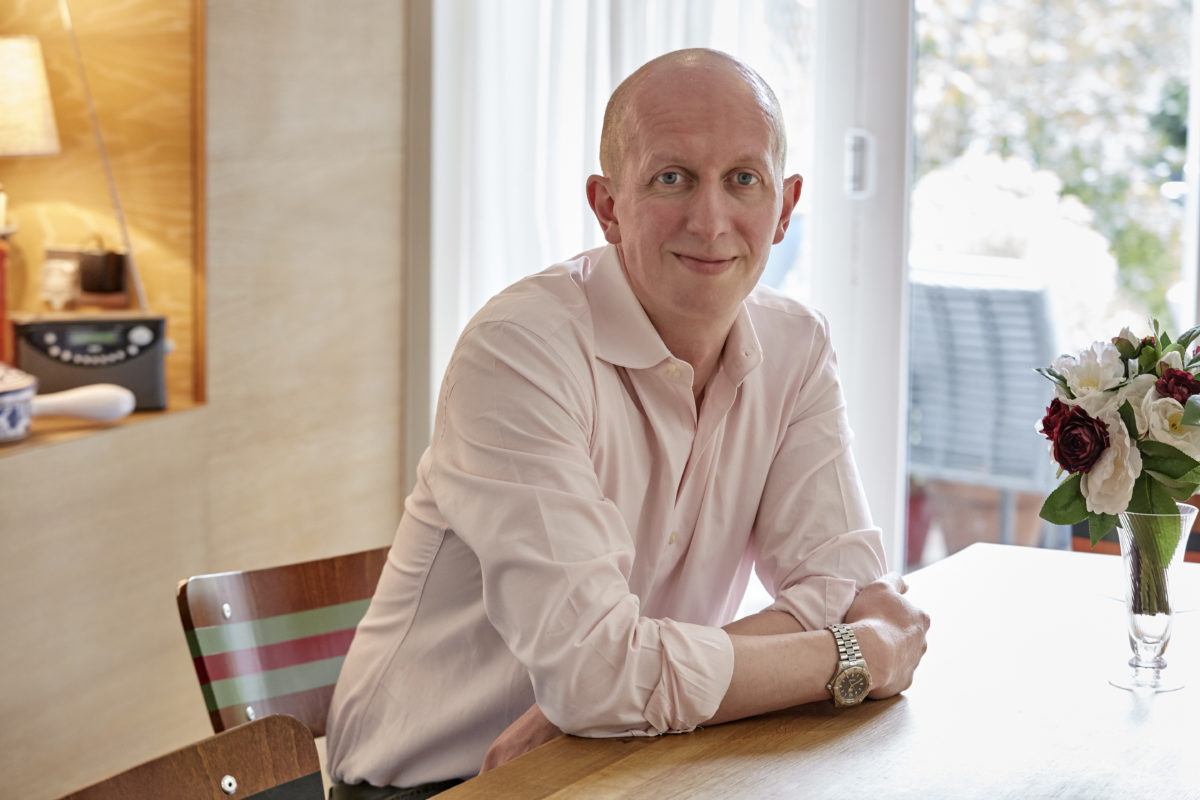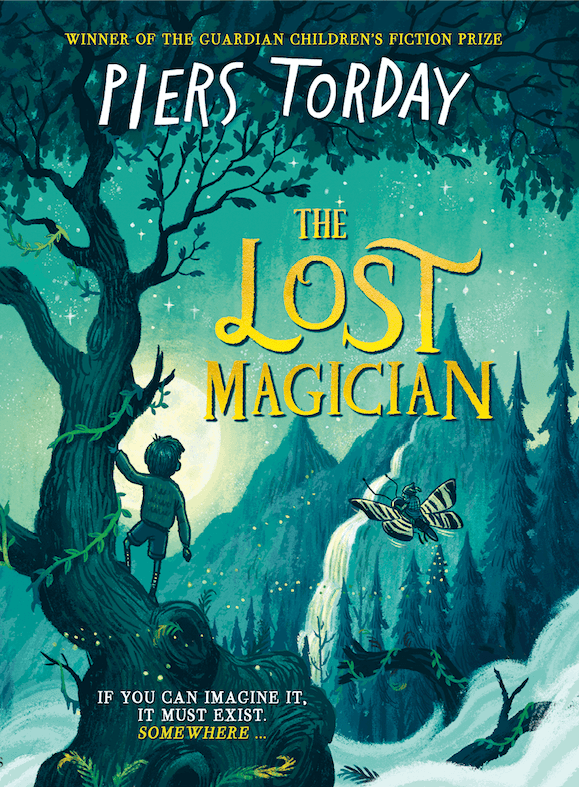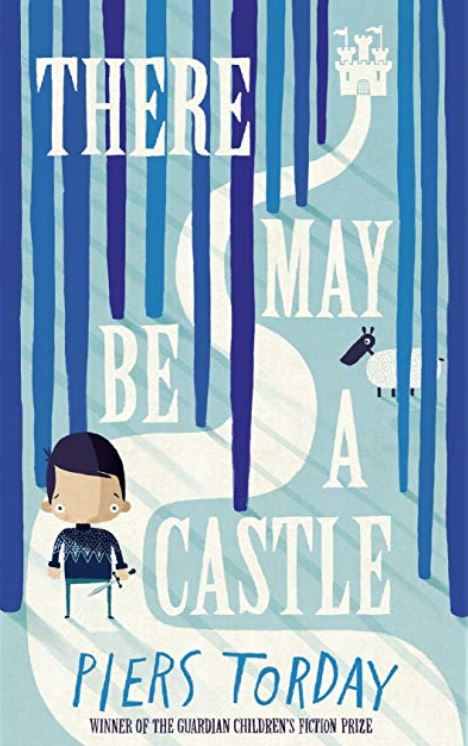Piers Torday is a Patron of Reading at St. Silas’s in Toxteth, Liverpool, and a Trustee of the Ministry of Stories, a charity which works with children in East London to enable their creativity and storytelling skills. He has written many books for children, including The Last Wild and There May Be A Castle. Here, he talks about his newest book, the thrilling, enchanting The Lost Magician…

Without giving too much away, can you tell us a bit about your newest book The Lost Magician?

We are living through very uncertain times, a rapidly changing world, and I wanted to write a book for children which looked at how everything we thought we knew can disappear very quickly, but also how they could be agents for change in building a better world.
My inspiration was a book that – in part – attempted the same for children facing the aftermath of war, The Lion, the Witch and the Wardrobe. My homage begins at the end of the Second World War, with four children – Simon, Patricia, Evelyn and Larry, sent away to a mysterious house in the country, where they discover not a magic wardrobe, but a magic library…
How would you say The Lost Magician is similar to There May Be A Castle? How is it different?

Both books are concerned with the power of stories to both change the world and shape individual destinies. They both explore the abstract notion of the imagination as something more concrete, bringing fictional characters – whether drawn from books or a child’s games – to life and imagining what might happen in real world interactions with them.
But There May Be a Castle is a contemporary story, that could possibly happen, where the fantasy is very personal to the main characters, and exists on a psychological plane, bordering on the feverish. The Lost Magician, on the other hand, is a period piece, and one that explicitly creates a fictional fantasy world of magic and monsters accessed through a portal.
I’m particularly interested in the opening of Chapter 2, when you talk about Larry’s reading habits and how his teachers have told him he needs to read more. As he picks up ‘The Golden Fairy Tale Treasury’, he wonders if he’s allowed to read it. ‘Allowed’ is a really interesting word. Should children be allowed to read whatever they like, whenever they like? How can teachers develop a love of books and reading?
Reading is equally a pastime and a pleasure, and it can be a means to study and acquire knowledge – indeed, sometimes the two can be combined! The ability to read widely and deeply, to experience and learn from the lives of others, and enrich our knowledge of the world beyond mere facts or snapshots, has obviously so far proved key to human progress.
Our understandable anxiety about literacy and its key role in human progress means we sometimes elevate reading to the status of an elite skill rather than universal pleasure, only to be accessed through organised educational activities. We don’t teach or censure (beyond age appropriateness) children on what movies to watch, or what games to play, and they take to them effortlessly.
“The best way to get anyone to read is not to make choices for them, not to judge their reading habits or progress, or enforce “difficult” reading, but rather to let children roam freely amongst library shelves, following their natural interests, whether it’s comics or books on space travel or the latest Philip Pullman.”
We should give them the space to read without distraction, and genuine free time, not time scheduled to death. And ideally model reading, by reading to them for fun, and by sharing stories together. By looking at books ourselves occasionally rather than our screens, and by encouraging them endlessly in whatever grabs their attention, because neither they or us know where it might one day lead.
I wondered about Jana and her role in the story – she thinks stories are silly and old-fashioned and reduces everything to data, viewing the world as something to be processed. I’m interested to learn if Jana embodies your feelings about our current education system and those in charge of education in any way?
Just to make my position clear – from climate change to our health, to the economy, and education – I am no enemy of the deeper comprehension of our world that data brings! But I worry about becoming so dependent on data alone, that in the words of tech journalist James Bridle, in his book, The New Dark Age, “the demand for some piece of evidence that will allow us to assert some hypothesis with 100 per cent certainty overrides our ability to act in the present.”
I welcome any data which can genuinely improve educational and social outcomes.
But I also don’t need any data, of any kind, to believe that there is an inherent value in education itself. The transfer of knowledge between the generations, the sharing of stories that shape us all, the great vocational calling of teaching – my belief in these is fundamental to my sense of self.
And I worry that an over formal, technical teaching of our common language, which should be available to all for confident, fluent communication and self-expression, often only raises barriers to entry. We do not go to school just so we can be economically useful and acquire a proscribed set of skills. We go to school so we can develop life-long skills of enquiry, so we can always examine our lives and world, to make the most of them. Learning about writing and stories should be fun, creative and developmental as well as occasionally acquisitional and demanding.
It sounds like Ofsted are thankfully moving away from such a narrow focus on tests and results, and I hope that is true.
The book is a real celebration of libraries and you talk about the best adventures beginning in the library. What are your earliest memories of visiting a library?
My earliest library memories are of the wonderful bright yellow mobile library which visited us in rural Northumberland. I remember clambering on board and leafing through picture books for what felt like hours. My first sense of an infinite world of imagination, accessed through pages, and here it was, parked on our doorstep! Now that’s magical.
What can libraries offer today’s children? Are they still relevant in our modern society?
So much, and yes they are. Not only are they invaluable for families who may have bottomless funds to buy books, but are passionate about reading and discovery, but they are also shared, civic spaces which are dedicated to knowledge. That value to children and society at large is not only incalculable, but worryingly at risk.
Finally, can you describe The Lost Magician in three words?
Believe your imagination.
This slideshow requires JavaScript.

